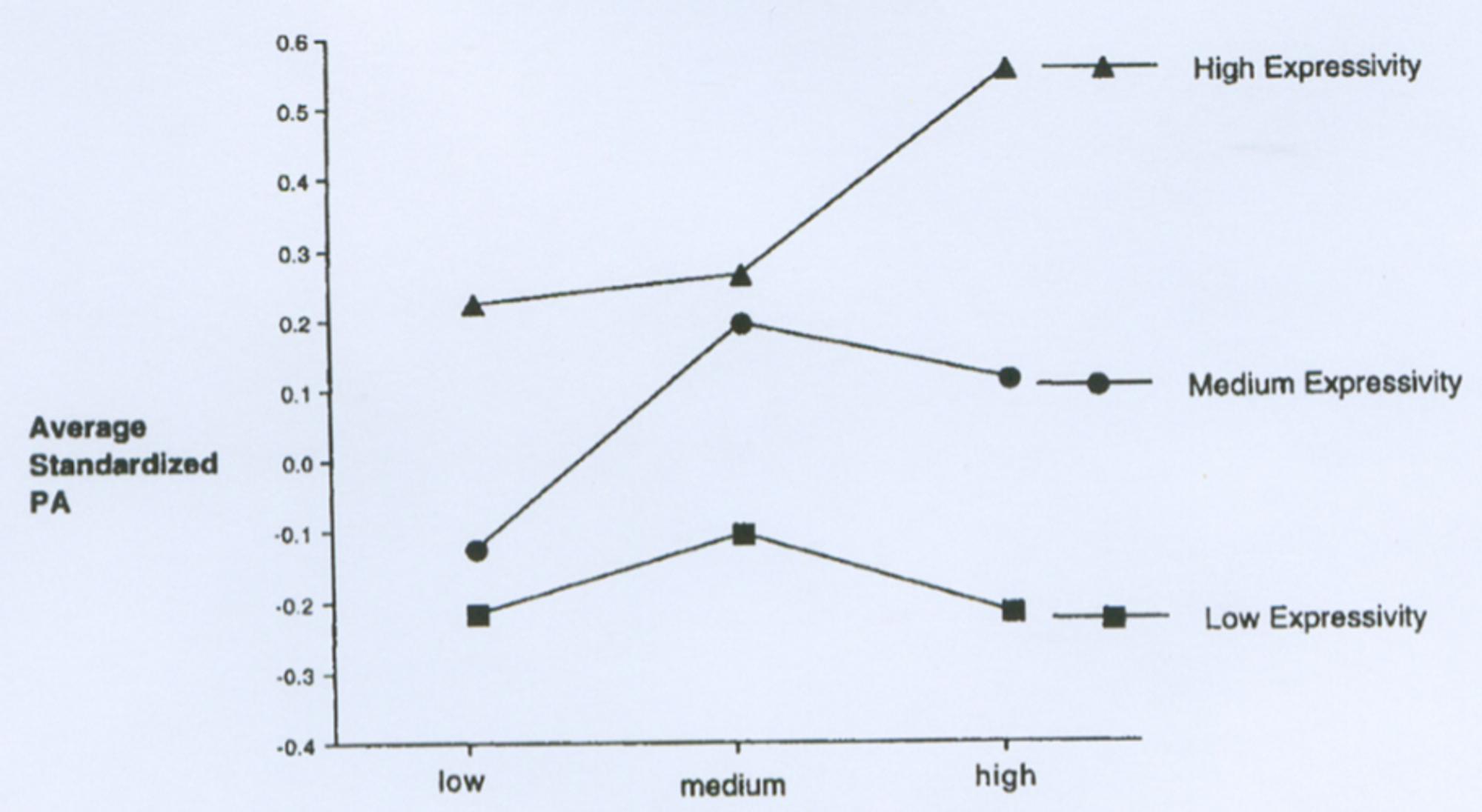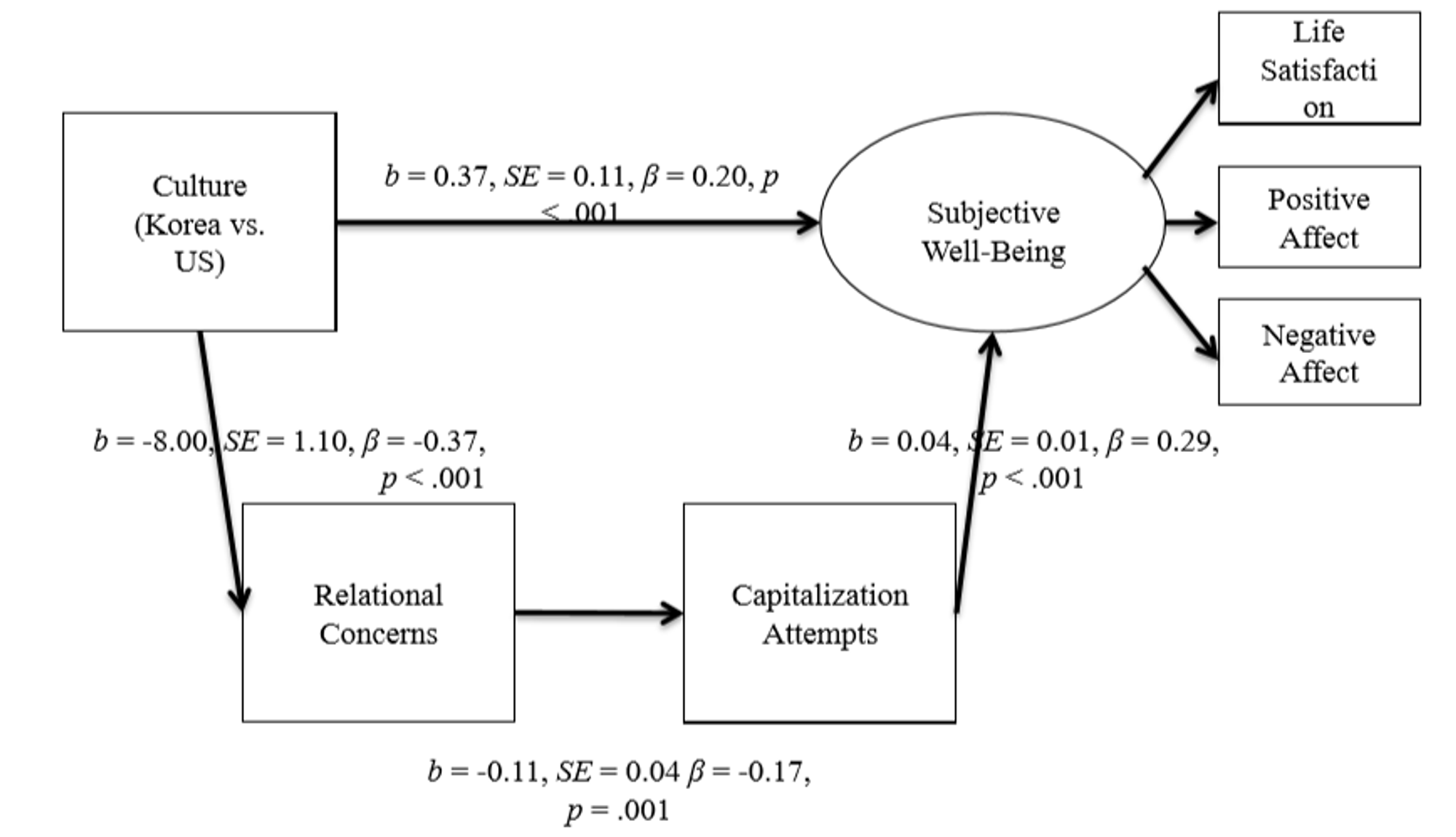Cognition & Happiness Conclusion
Individuals beliefs or “theories” about happiness → influence happiness
ex. luck is more important than effort
Cognitive strategies & decisions matter
Is happiness really a “thought”?
- “thinking styles,” there are some individual differences in “feeling styles” - Frequency of PA/NA - Duration of PA/NA - Intensity, Variability of PA/NA - *Savoring of PA/NA - *Expression of PA/NA
- vast majority of current self-help books suggest you to change your beliefs
→ Happiness is experience so do not overestimate Cognitive strategies
Zero-sum Theory
believe Happiness exist in a "fixed” amount (BIFAH)
- Between people → make jealous → make unhappy
- Within life → cannot enjoy now totally
These kind of people like
- more competitive
- frequent social comparison
- fatalistic belief
- low extraversion
- high neuroticism
- low other's rating about likable, happy
Show less life satisfaction, positive affect, and (before controlling Big 5) high negative affect
Sense of Control
People are fundamentally motivated to seek control - able to tolerate more distress if they “believe”they have control over the environment
Good for happiness
Looking at the best versus worst domain
overall happiness based on
- personal “best “domain (happy people)
- personal “worst “domain (unhappy people)
No life has everything; see what you have, not what you are missing
Happiness is a warm, abstract thought
Life satisfaction correlated to abstractness of LS standards (Contrast to BIFAH)
concrete condition(like learned experience) - abstract condition (like inherent experience)
-> “intrinsic goals” (meaning) are more satisfying than “extrinsic goals”
Counterfactual thinking - low condition can be more happy like bronze Olympic bronze medal give more happiness
Savoring
From here - we treat individual difference
form of emotion regulation used to prolong and enhance positive experiences - ENJOY THIS MOMENT
It’s not having what you want. It’s wanting what you’ve got Contrast to Korean stars saying “계속 지켜봐 주세요”
Price of abundance
Feel abundant make less time to savor
But “affluence” impacts happiness in complex ways - convenience, less savoring, boredom
Expression
"To find out other's feeling - fashion the expression of my face, as accurately as possible, in accordance with the expression of his, and then wait to see what thoughts or sentiments arise in my mind"

facial feedback hypothesis - face expression(body) is not only result of mind, cause of happiness(mind)
unrelated factor can effect to our choose
Capitalizing on Positive Events
people’s typical responses after positive/negative life events
- Social contact* - let others know
- Marking* - express
→ make savoring -high BIFAH → capitalize less
cultural norms on emotion expression
(PA-NA) size
More relational concern→ less capitalization → lower SWB
compared to US, Koreans:


 Seong-lae Cho
Seong-lae Cho